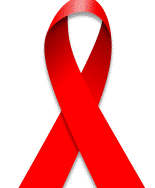2008: Celebrating the 60th Anniversary of the Universal Declaration of Human Rights
Universal Declaration of Human Rights: Introduction
Sixty years ago, nations of the world joined together in recognizing that all peoples, in all nations, are free and equal regardless of race, religion, economic status, age, gender or other personal characteristics. Through the signing of the Universal Declaration of Human Rights in 1948, the United Nations brought into being the first international document recognizing human rights as the foundation of peace, justice and freedom in the world.

The Universal Declaration outlines 30 basic rights essential for all human beings to achieve their full potential and to live a life free of fear and want. It was a unique approach that developed from the world saying 'never again' to the horrific events of World War Two, a war that brought a scale of atrocity never previously witnessed. The global death count is estimated to have been more than 50 million. War crimes were widespread: from the infamous Holocaust in which Nazi Germany sought to eliminate 'undesirables' such as Jews, Poles, Slavs, Roma, Sinti, the mentally and physically disabled, homosexuals and other persons, to the use of sex slaves, otherwise known as 'comfort women', by Japanese soldiers. Labour camps were used throughout the world and, disturbingly, World War Two brought the first testing of biological warfare by Japan and the use of atomic bombs in Nagasaki and Hiroshima by the United States of America. Read more...
The Right to Health

The right to health is highlighted in the Universal Declaration under Article 25 as the right to a standard of living that can ensure health and well-being. Based on this article, many other international conventions and documents such as the Convention on the Rights of the Child have expanded on health as a basic human right to which every human being is entitled regardless of nationality, religion, gender, or any other trait. Being healthy is at the core of individual well-being; it enables each of us to be able to live well, to become educated, and to pursue goals.
Globally, access to good health for all is yet to become a reality. Malaria, HIV/AIDS, tuberculosis and other diseases remain major problems throughout the world, with devastating impacts on the ability of countries and people to develop.
The United Nations realizes the importance of health as a human right, and with the Millennium Development Goals has expanded on key priorities to improve the well being of millions of people around the world by 2015. Goals related to health include:
- Reducing child mortality by two-thirds
- Improving maternal health
- Combating HIV/AIDS, malaria and other diseases
- Reducing by half the proportion of people without access to safe drinking water
- Ensuring the provision of affordable life-saving drugs in developing countries
In Canada, we have the benefit of access to universal and affordable healthcare, but we need to improve the conditions under which some people live and to ensure that health services are accessible to all. Our growing population, shortages of health practitioners and increasing health issues place continual strain on the public health system, and wait times in emergency wards or for critical surgery are often unacceptably long.
Aboriginal people in Canada die younger and at higher rates than non-Aboriginal people, and Aboriginal populations have a higher incidence of HIV and AIDS than the rest of the Canadian population. Health Canada indicates that Aboriginal communities are at increased risk due to a variety of social and economic factors such as poverty, lower levels of education, and limited access to health services and facilities due to distance.
Individuals from the transgendered community have voiced concerns over discrimination in the health care system and its failure to fully accommodate their needs for surgery and other health services. Persons with disabilities have expressed dissatisfaction with the inaccessibility of health services due to limited timeframes for visits to doctors, inaccessible health facilities, and the rising costs of disability-related health products. The stigma that persons with disabilities, particularly persons with mental disabilities, and the gay, lesbian, and transgendered communities face further complicates full accessibility to health services as well as other human rights.
Clearly, while Canada has a strong public health system, we have to work continually to address gaps, barriers and discrimination within it.
Consider how you can influence change in a system that can sometimes be discriminatory. Join action campaigns to raise awareness on issues, learn more about the challenges of some communities in accessing health, become a peer health educator, or do a fundraising run for research on a disease. In small ways, you can make a difference.
Learn More! Get Involved!
- The François-Xavier Bagnoud Center for Health and Human Rights
- Health Canada
- Physicians for Human Rights
- Realizing Rights: the Ethical Globalization Initiative -- Everyone has the Right to Health
- World Health Organization -- 25 Questions on Health and Human Rights



